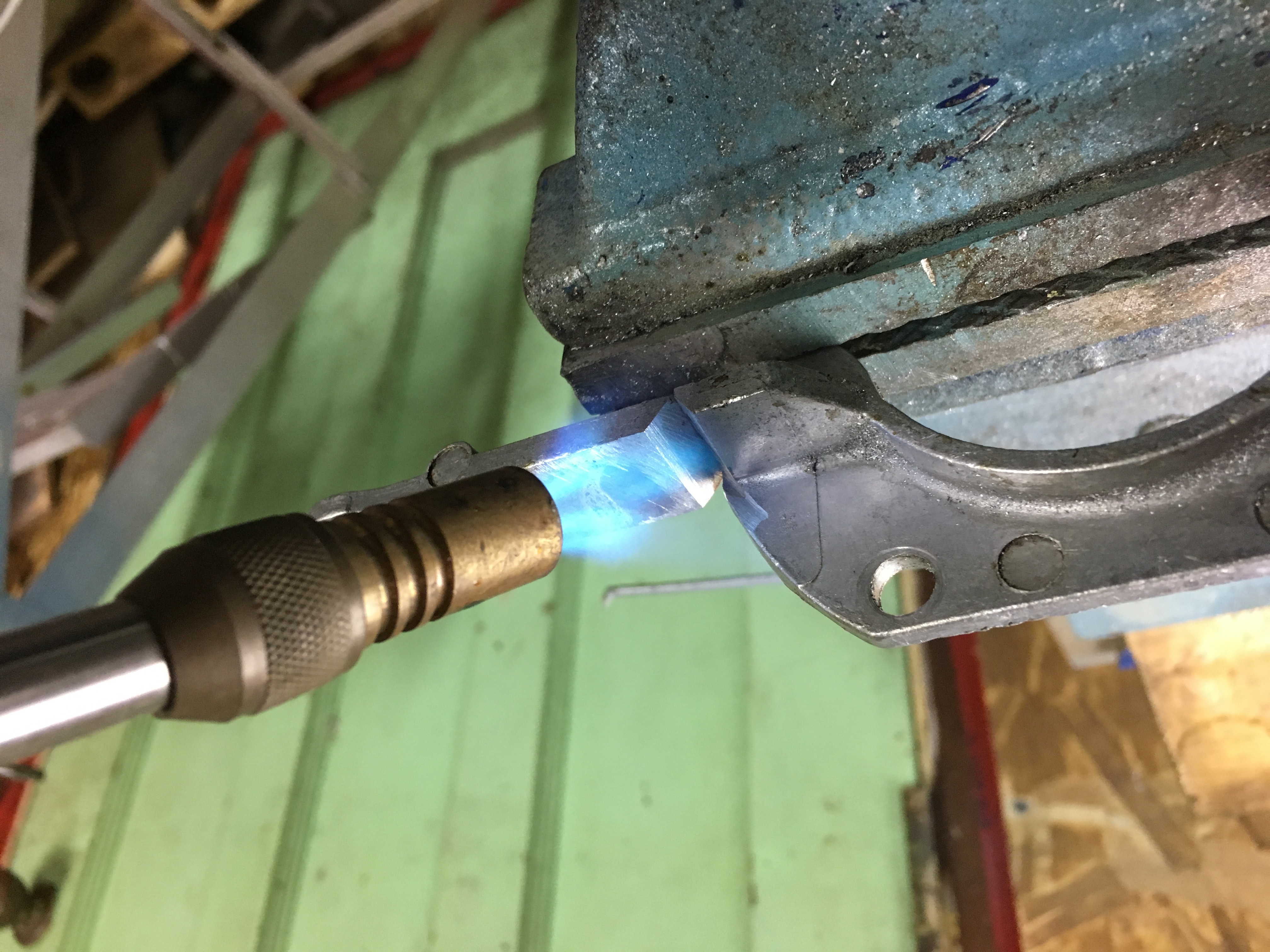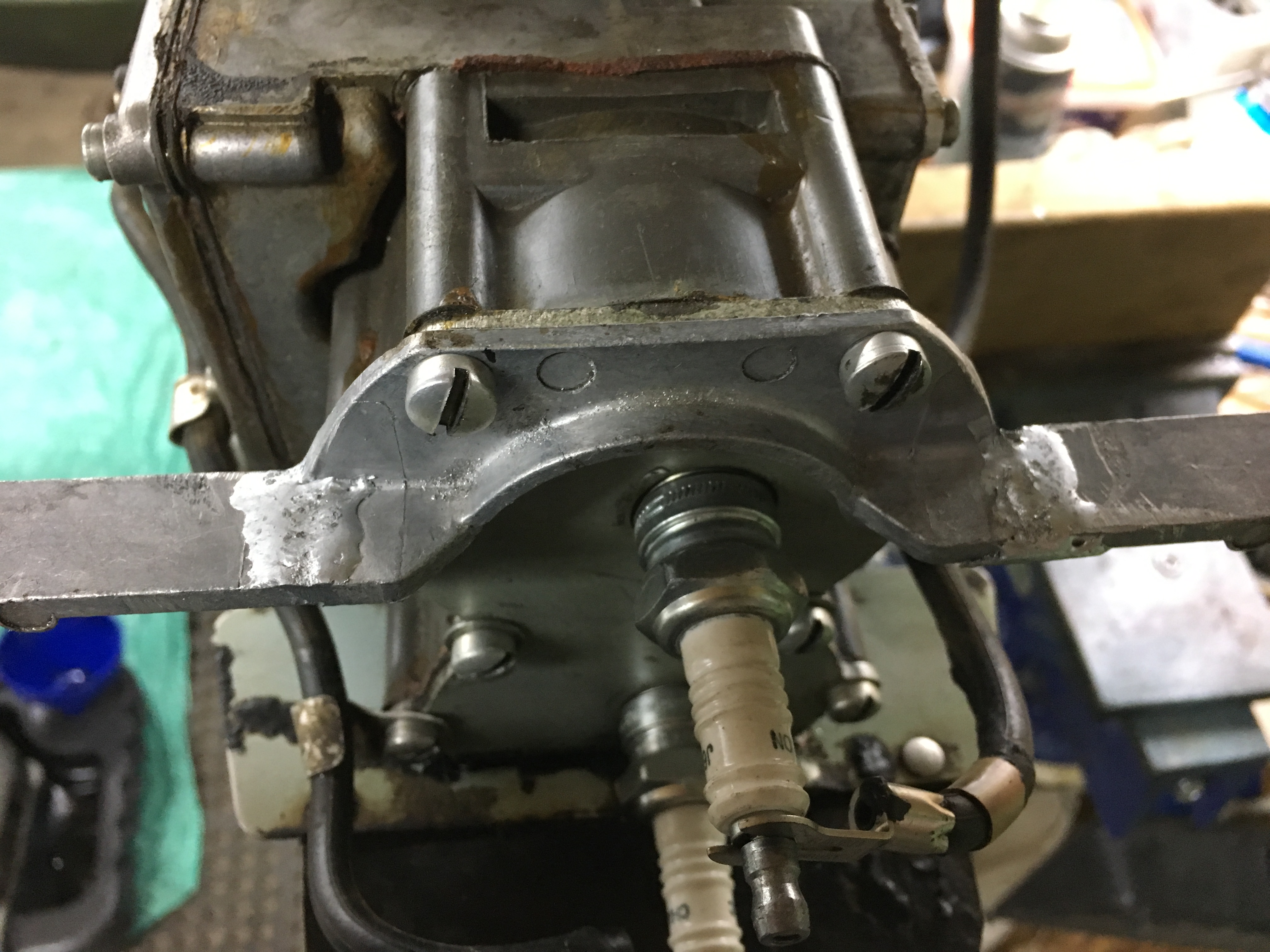Home › Forum › Ask A Member › Aluminum brazing
- This topic has 12 replies, 10 voices, and was last updated 5 years, 12 months ago by
joecb.
-
AuthorPosts
-
April 30, 2018 at 2:39 pm #9783
A friend has a Lund boat that he bought used. It had been on carpeted trailer bunks that were soaked in salt water, and over time the boat developed thin spots and holes where it rested on the bunks.
He is considering using low temperature aluminum brazing rods to repair the holes and rebuild the missing material but is concerned that the factory installed seam sealer will be degraded by heat, causing new leaks.
Can anyone advise? Epoxy putty could be used instead, but the repaired areas will be subject to abrasion and wear.
Thanks!
April 30, 2018 at 3:16 pm #75074April 30, 2018 at 3:40 pm #75076April 30, 2018 at 3:45 pm #75077I think that unless he is very experienced with aluminum "brazing" and welding he will end up with a boat with many more and bigger holes. I would incline to the riveted patch approach if access to the inside is available and he knows how to shoot rivets. Or even consider high quality blind rivets.
April 30, 2018 at 4:24 pm #75080I know this will sound crazy, but the stuff from the alumaloy tv infomercials really works.
April 30, 2018 at 6:29 pm #75094The issue is the melting point of the base material is very close to the melting point of the filler material. Usually one needs to lay flat the work and puddle or float the filler around the work using steel strips to make a dam. A friend was trying to save an IO gear case using that stuff. As he was heating the work the work melted at the same temp as the al rod. Ended up with a puddle of rod and a section of gear case on the bench all liquidized…was the TV stuff..
April 30, 2018 at 8:31 pm #75097For clarification of terms and materials … I suspect that what is here being referred to as "aluminum brazing" is really the "TV stuff". Now there are many true aluminum brazing alloys out there, however to the best of my knowledge they all require the use of a flux. Fluxes for AL have to be very active, usually fluoride compound based and are not generally available to the "homeowner" market. Many items in industry are furnace brazed using pre-fluxed lower melting point AL alloys. Now the "TV / flea market stuff" is actually a zinc based soldering rod. If you are well practiced and scrupulously clean in your joint preparation AND can manage the heat to just the melting point of the rod a very good and strong joint can be achieved. Be aware however that the resulting filler metal will not be AL, it will be zinc, not matching the AL for color and it will be much harder than the surrounding AL.
Joe BApril 30, 2018 at 10:22 pm #75109You are right about that, JoeCB. The filler isn’t actually aluminium and is much harder than aluminium. However, the colour is pretty close. Most people would never notice the repair. I have used both Bernzomatic and Durafix rods. If you follow the directions it’s pretty easy to make a good bond on thin clean materials. A project like Tubs’ is difficult. You definitely need MAPP gas or AO if you are careful.
Wayne
Upper Canada Chapteruccaomci.com
May 1, 2018 at 12:15 am #75120Here is my take on this. The guys on TV have "Lots" of practice on the material that they show you. Nice clean metal. The reality of it is, at least my own experience, is that this is not very useful in a practical sense.
I have repaired a skeg and a prop, and a blow out on an aluminum tank on my Bendix(Too much air pressure), however I would not even attempt a repair on a corroded boat bottom. The material is just too thin and too dirty.
Seek out a professional and save the frustration.
JMHO
May 1, 2018 at 2:03 am #75130Hi Tubs
Sorry to see you have been having a hard time welding that skeg,but the finished job looks great.
My Pal had a broken off skeg and I had it repaired back in 1976 by a firm here in Auckland.
The chap who welded it, specialised in aluminium and made a perfect job after I had cut out a replacement
skeg from some sheet duralium.
I do remember him saying that it was a bit of a challenge as the gearbox was a strange alloy to him and the motor had been in saltwater.
It’s had a few knocks over the years but is still secure and looks original.
I’m only sorry that I can”t remember the method he used back in 1976. and unfortunately the firm has since vanished,
otherwise I would have rung the chap to see if he could advise me.Monte NZ
-
AuthorPosts
- You must be logged in to reply to this topic.




